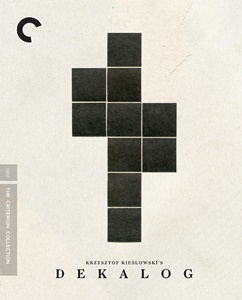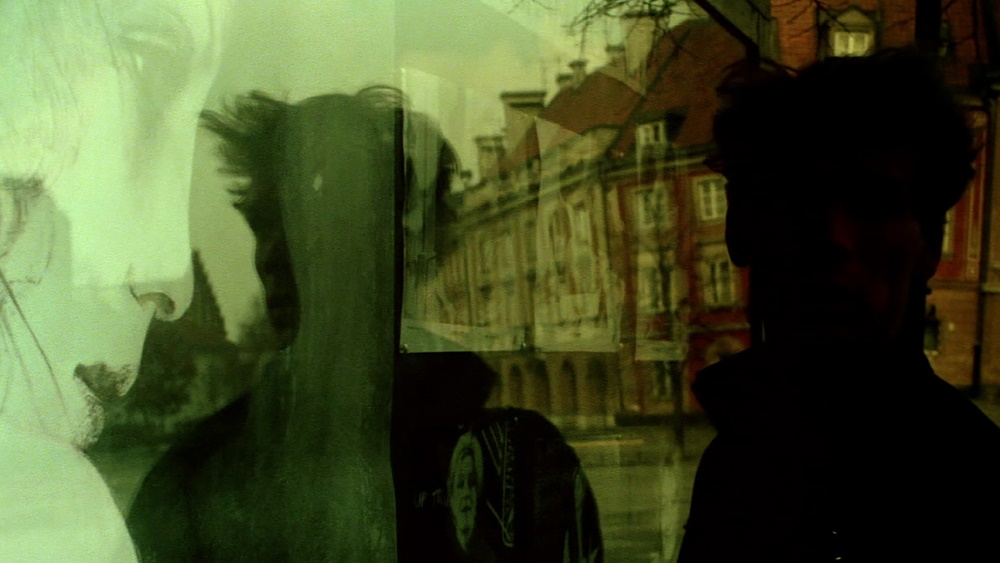A powerful emotional and moral examination of the irrationality of a killer’s actions and the consequent state-sanctioned murder, shot in a haunting vignette effect visual style.
Dir. Krzysztof Kieslowski
1988 | Poland/West Germany | Drama | 59 mins | 1.33:1 | Polish
Not rated (likely to be PG13 for some mature themes)
Cast: Miroslaw Baka, Krzysztof Globisz, Jan Tesarz
Plot: Jacek, an angry drifter, murders a taxi driver, brutally and without motive. His case is assigned to Piotr, an idealistic young lawyer who is morally opposed to the death penalty, and their interactions take on an emotional honesty that throws into stark relief for Piotr the injustice of killing of any kind (from The Criterion Collection)
Awards: Won FIPRESCI Prize & Children and Cinema Award (Venice). Official Selection (Cannes).
Source: Telewizja Polska S.A.
Accessibility Index
Subject Matter: Heavy
Narrative Style: Slightly Complex
Pace: Slightly Slow
Audience Type: Slightly Arthouse

(Reviewed on Criterion Blu-ray – first published 10 Apr 2017)
Reviews:
Dekalog: One
Dekalog: Two
Dekalog: Three
Dekalog: Four
Dekalog: Six
Dekalog: Seven
Dekalog: Eight
Dekalog: Nine
Dekalog: Ten
Spoilers: Mild
One of Krzysztof Kieslowski’s films that I first saw was A Short Film About Killing (1988), a feature-length extension of Dekalog: Five, which covers very much the same ground. The fifth episode is no doubt one of the most powerful parts of the series, centering on the taking of someone’s life as its disturbing subject.
The act of killing, as it were, is explored in two-fold—one revolves around an act of dispassionate bestiality, the other an act of law. A young man brutally murders a cab driver, and is sent to the gallows.
That is the gist of this emotional and moral examination of the irrationality of a killer’s actions and the consequent state-sanctioned murder.
Despite the dark and depressing material, Kieslowski manages to find a warm humanity emanating from the conversations between a young, idealistic lawyer and the convict just before the latter’s execution, revealing the need for compassion for a fellow human being, regardless of his or her dastardly deeds.
Granted, any kind of killing is immoral, motivated or otherwise. But to have a law that gives the State the authority to take someone’s life in the name of justice is akin to legitimizing murder.
Law is subjected to interpretation and deliberation; death, however, is the final word. They should never ever be mentioned in the same breath.
The debate has raged on for decades, and movies like The Executioner (1963), Death by Hanging (1968), Execution in Autumn (1972), and our very own Apprentice (2016), are testament to the polarizing nature of the discourse.
Shot in a visual style that privileges a unique vignette effect, Dekalog: Five’s aesthetic is markedly different from the preceding four episodes, showing Kieslowski’s mastery of tone, in this case, a hauntingly sombre one.
Each shot composition features dark edges that encroach into the space of the characters, seemingly strangling them in an act of cinematic asphyxiation, squeezing the humanity and idealism out of them.
Ultimately, there’s a frustrating sense of inevitability—violence begets violence, yet through the drama and characterization, Kieslowski liberates us temporarily of the need to take sides and try to search within ourselves what truly makes us human—which unfortunately is our mutual sadism towards each other.
Grade: A
Trailer:
Music:












[…] Dekalog: One Dekalog: Two Dekalog: Three Dekalog: Four Dekalog: Five Dekalog: Six Dekalog: Seven Dekalog: Eight Dekalog: […]
LikeLike
[…] Dekalog: One Dekalog: Two Dekalog: Three Dekalog: Four Dekalog: Five Dekalog: Six Dekalog: Seven Dekalog: Eight Dekalog: […]
LikeLike
[…] Dekalog: One Dekalog: Two Dekalog: Three Dekalog: Four Dekalog: Five Dekalog: Six Dekalog: Seven Dekalog: Nine Dekalog: […]
LikeLike
[…] Dekalog: One Dekalog: Two Dekalog: Three Dekalog: Four Dekalog: Five Dekalog: Six Dekalog: Eight Dekalog: Nine Dekalog: […]
LikeLike
[…] Dekalog: One Dekalog: Two Dekalog: Three Dekalog: Five Dekalog: Six Dekalog: Seven Dekalog: Eight Dekalog: Nine Dekalog: […]
LikeLike
[…] Dekalog: One Dekalog: Two Dekalog: Three Dekalog: Four Dekalog: Five Dekalog: Seven Dekalog: Eight Dekalog: Nine Dekalog: […]
LikeLike
[…] Dekalog: One Dekalog: Two Dekalog: Four Dekalog: Five Dekalog: Six Dekalog: Seven Dekalog: Eight Dekalog: Nine Dekalog: […]
LikeLike
[…] Dekalog: One Dekalog: Two Dekalog: Three Dekalog: Four Dekalog: Five Dekalog: Six Dekalog: Seven Dekalog: Eight Dekalog: […]
LikeLike
[…] Dekalog: One Dekalog: Three Dekalog: Four Dekalog: Five Dekalog: Six Dekalog: Seven Dekalog: Eight Dekalog: Nine Dekalog: […]
LikeLike